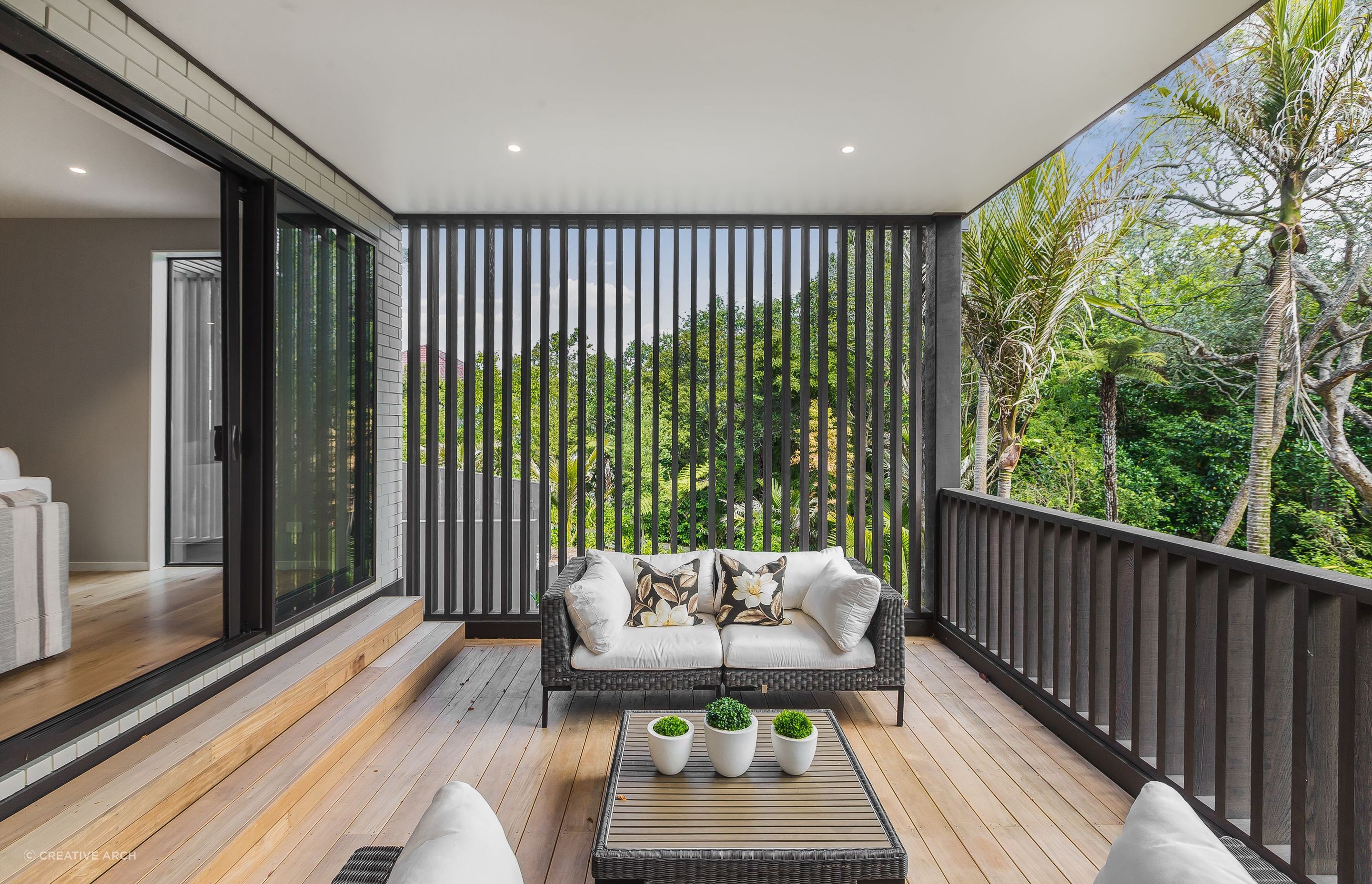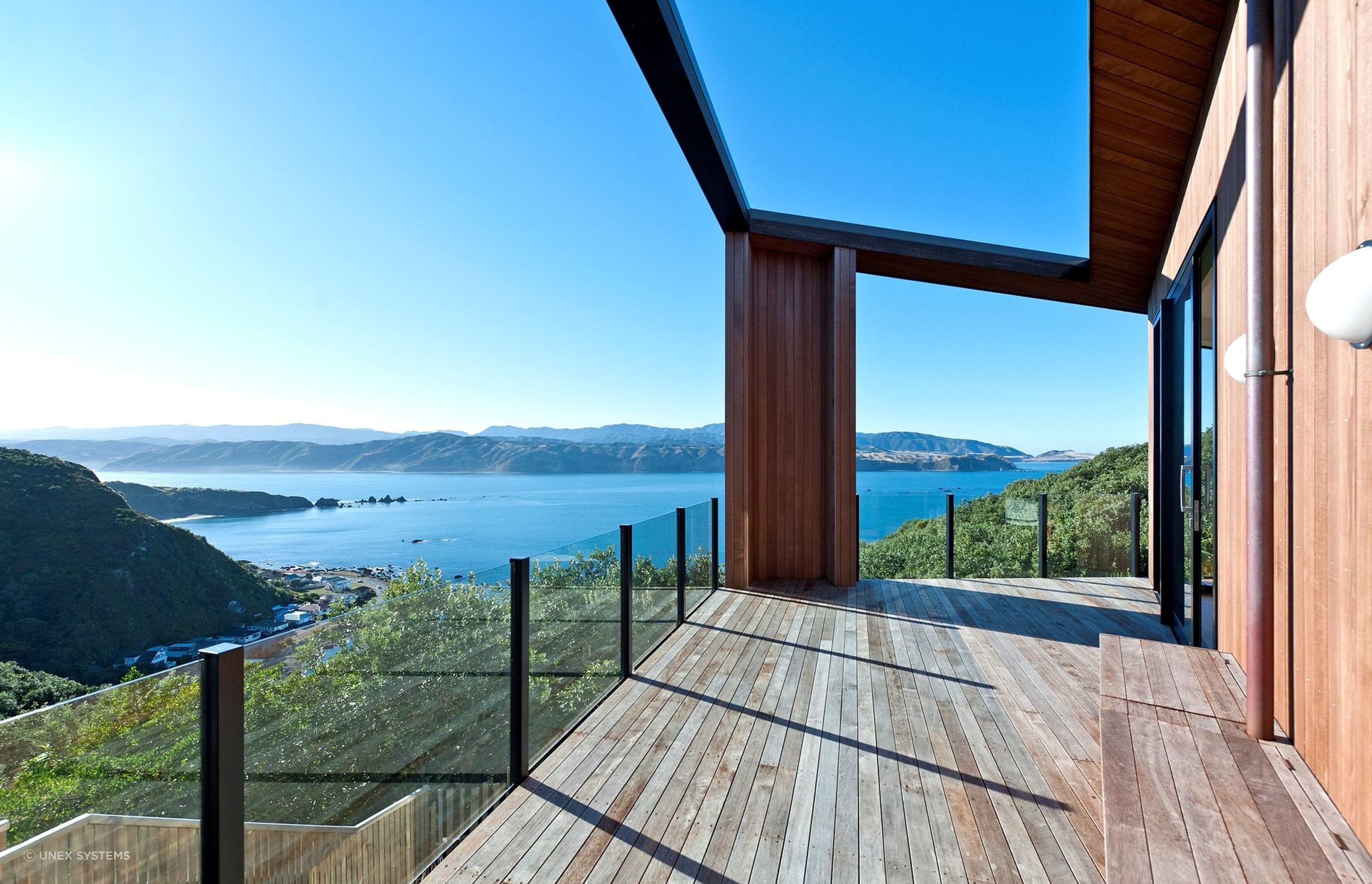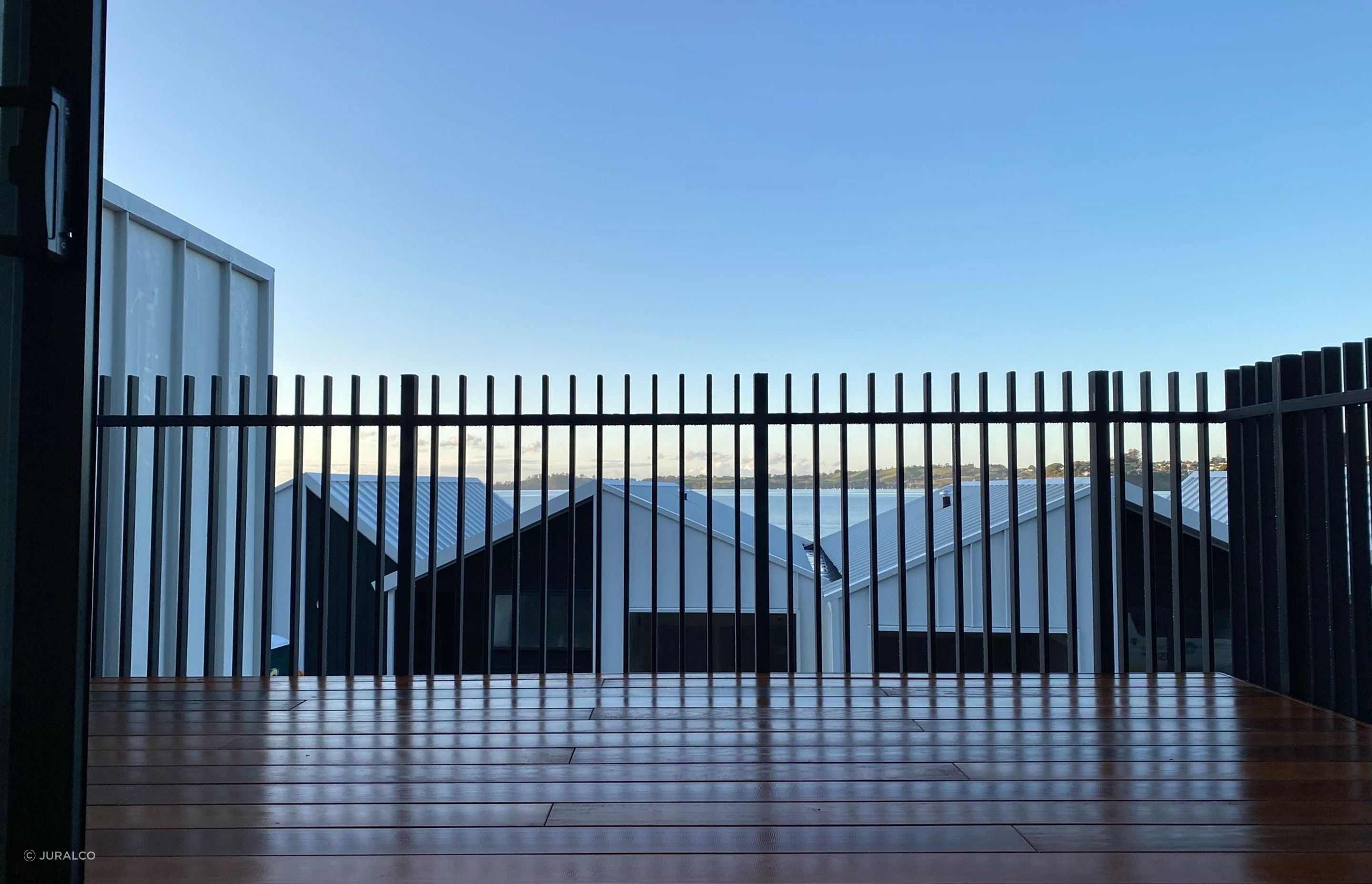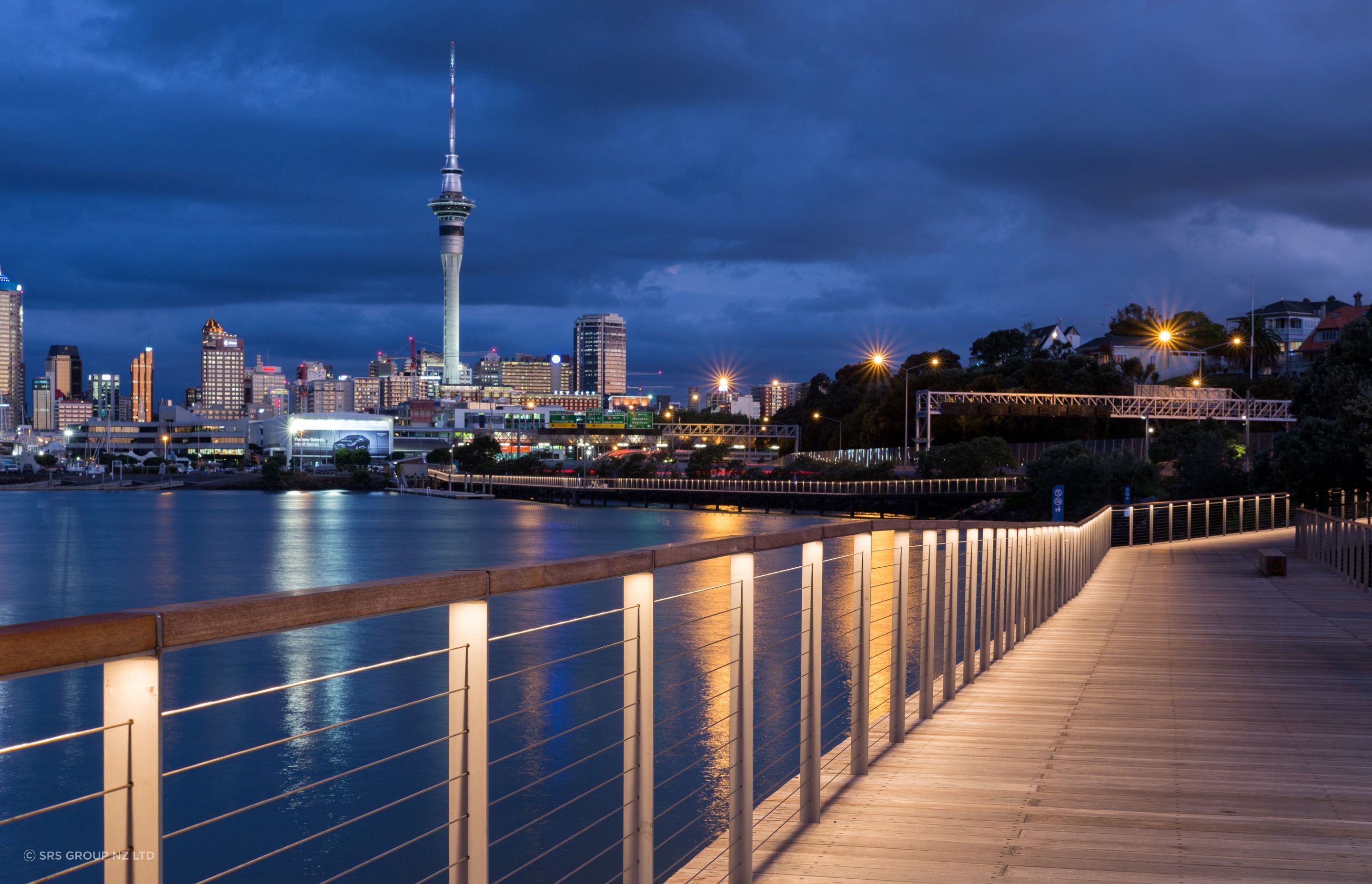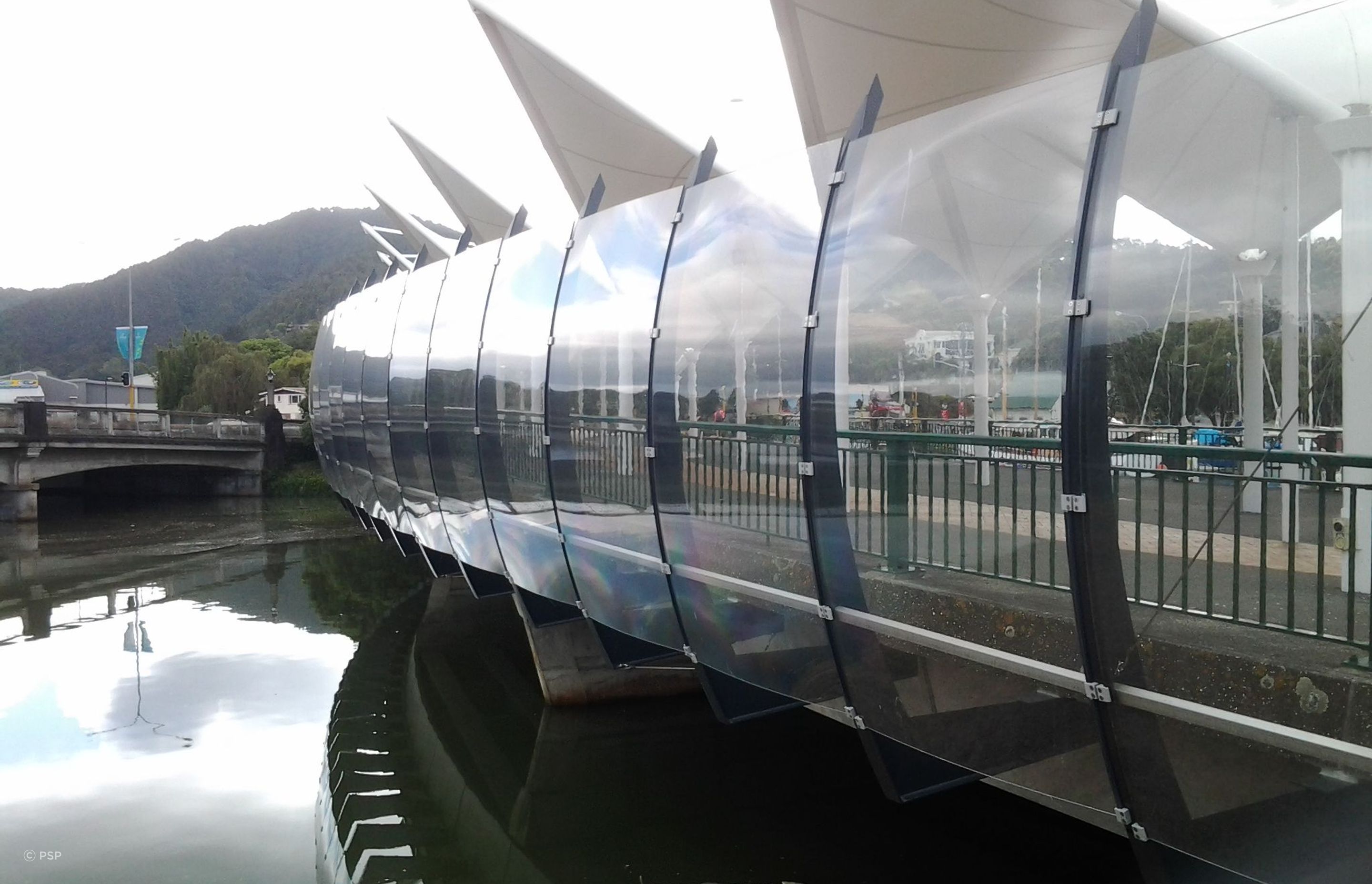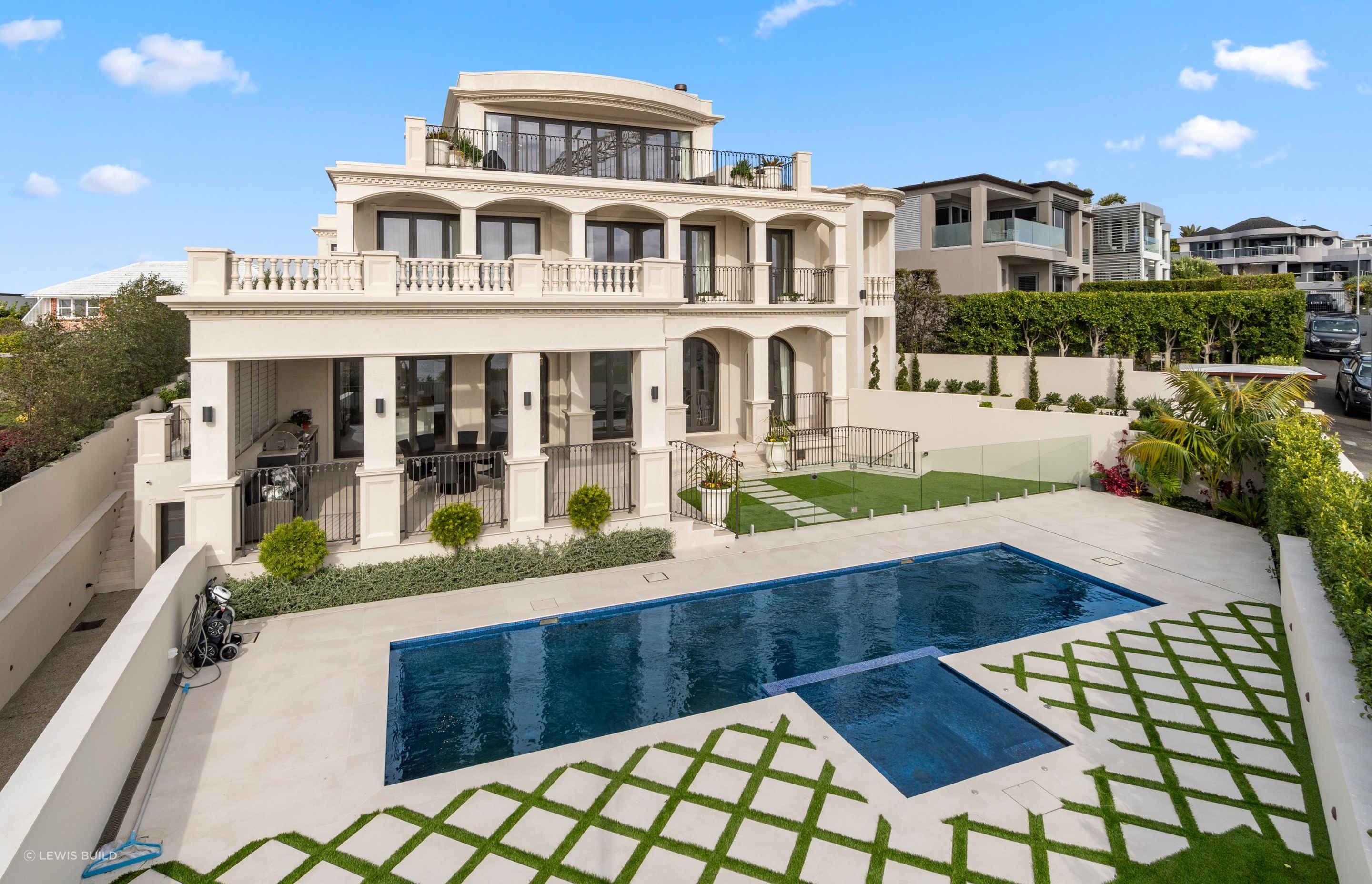Types of balustrades and why you should consider them
Written by
09 September 2019
•
8 min read
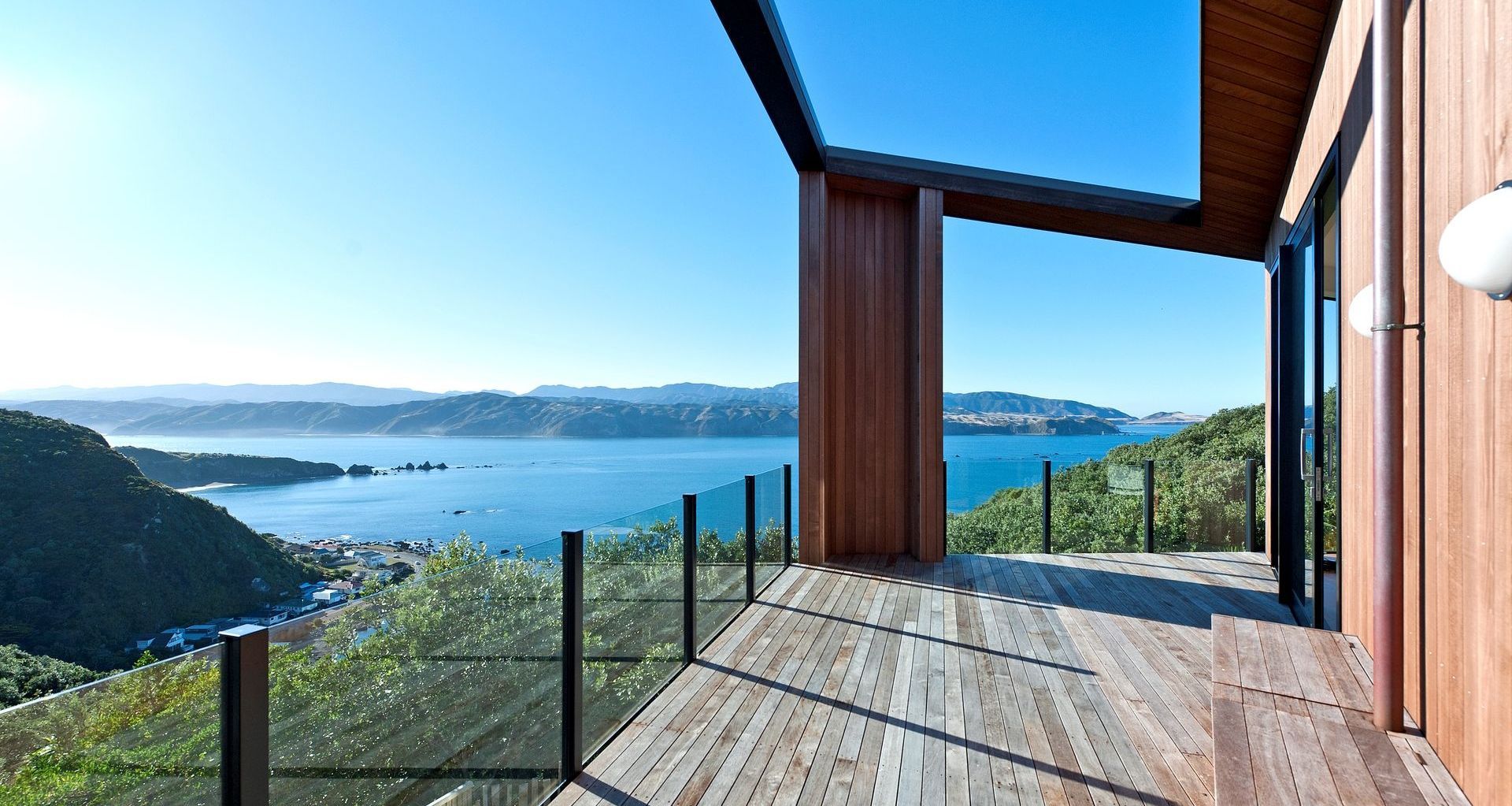
If you've been looking at different balustrade solutions you'll already know there are a number of strong contenders to choose from. Before making that final call, it's important to have a comprehensive understanding of the characteristics and qualities of the main choices, some of which are fairly well established while others may surprise you.
1. Wooden balustrades
Wooden balustrades are a popular choice in New Zealand for both their look and versatility, serving as a natural enhancement to a wide array of architectural designs and applications. The inherent beauty of wood adds warmth and elegance to any setting, be it indoor or outdoor, traditional or modern. The wide variety of timber species available, each with its own distinctive look, coupled with the fact they can be painted or stained allows for a high degree of customisation. This essentially means you can make wooden balustrade materials work in any situation.
The sustainability of wood as a renewable resource when sourced from responsibly managed forests also makes it an environmentally friendly option. They boast impressive durability and strength and proper treatment and maintenance can extend their lifespan significantly. Wooden balustrades are also easy to repair and install, highlighting the practical strengths of this type of balustrade. You'll also find some stunning solutions featuring intricate craftsmanship as well as suppliers who will create bespoke designs allowing you to create something personal and unique to you.
2. Glass balustrades
Glass balustrades have become increasingly prominent in New Zealand, thanks to their sleek, modern style and the way they seamlessly integrate into almost any setting, both residential and commercial. Their most popular quality is their ability to provide a safe and solid barrier while offering an unobstructed view that maximises natural light. This makes them perfect for balconies and decks, especially on coastal and beachfront properties with views to appreciate. They are also a leading choice for pool fencing as they allow full visibility of the pool while doing their job serving as the safety barrier.
Other great qualities of glass balustrades include their robustness and their low maintenance requirements. Typically made from toughened glass or laminated glass, they are designed to withstand harsh weather conditions, including the strong winds and salt spray common in coastal areas. This resilience gives them great longevity, delivering a solid return on investment. The timeless quality of glass also means they will always be on-trend, continually enhancing the value of a home. As far as their maintenance goes, it essentially involves no more than regular spot cleaning with glass cleaner to remove dirt or fingerprints.
3. Metal balustrades
Metal balustrades are widely used for both residential, commercial and industrial properties due to their durability, strength, and versatility. They can be crafted from various metals, including stainless steel, aluminium, and wrought iron, each offering unique benefits which can be used in different ways. Metal balustrades provide a sleek, modern look with clean lines that suit contemporary design trends, but can also be designed to feature more ornate and traditional styles, particularly when using materials like wrought iron which can be fabricated with a high degree of flair.
One of the main reasons metal balustrades are considered a good choice in New Zealand is their exceptional durability and low maintenance requirements, especially in a country that is predominantly coastal. Stainless steel and aluminium, for example, are highly resistant to corrosion and rust, making them perfect for the aforementioned coastal and marine environments. This resistance ensures a long lifespan, and with minimal upkeep consisting of occasional cleaning, they easily retain their appearance too.
The strength of metal also makes it great as far as safety and security goes, with the ability to support significant weight making them suitable for balconies, decks and staircases even in industrial settings. Metal fabrication allows for design customisation making them adaptable to different settings and the added ability to have them powder coated makes them extremely durable.
4. Wire balustrades
Wire balustrades offer a contemporary look and minimalist design solution that is becoming increasingly popular in both residential and commercial settings. These balustrades typically consist of stainless steel wires stretched between posts, which can be made from various materials such as wood, metal, or even glass. The subtle appearance of wire balustrades makes them an excellent choice for properties that aim to maintain a sense of openness and space, while still working as an effective safety feature.
The reason why wire balustrades work well is they offer the strength of metal with minimal visual impact. This makes them well-suited to smaller interior spaces where you want to enhance the feeling of openness. The fact that stainless steel is commonly used for wire balustrades also makes them appropriate for coastal locations with a strong resistance to corrosion and rust.
Additionally, wire balustrades can be relatively easy to install and maintain. The tension of the wires can be adjusted over time to ensure they remain taut and secure, and the stainless steel requires little more than occasional cleaning to retain its appearance and integrity. This combination of aesthetic appeal, functionality, and low maintenance needs makes wire balustrades a practical and stylish choice for enhancing the safety and value of properties.
5. Polycarbonate balustrades
Polycarbonate balustrades are an innovative solution for those looking for a durable, safe, and visually appealing option. Known for its high impact resistance, polycarbonate is an ideal material for areas requiring robust safety measures, perfectly suiting New Zealand's varied weather conditions and seismic activity. It is less prone to shattering, making it a safe alternative for homes and commercial spaces alike. Its clarity ensures that property owners do not have to compromise on views, while its UV resistance protects against the sun's harmful rays and prevents the material from yellowing over time.
The versatility and ease of installation of polycarbonate balustrades add to their appeal, accommodating a wide range of architectural styles with custom design options. Their lightweight nature not only simplifies the installation process but can also lower associated costs, making them a cost-effective alternative in some situations.
6. Concrete balustrades
Concrete balustrades are a bold option, prized for their durability, strength, and the impact they can impart in a space. Constructed from a blend of cement, aggregates, and water, concrete balustrades can be moulded into various shapes and styles, offering a versatile solution for railing systems, balconies, staircases, and garden borders. This adaptability makes them suitable for a wide range of applications, from residential homes to commercial and public buildings.
Concrete is well-suited to withstand the country's diverse weather conditions, including heavy rains and strong UV exposure without significant wear or degradation. Concrete does not rot, warp, or corrode, making it a long-lasting option that can retain its appearance and structural integrity over time with minimal upkeep. Additionally, concrete balustrades provide a sense of permanence and solidity, contributing to the overall safety and stability of the structure they are part of. They can also be cast in various textures and finishes providing a different type of look, especially when compared to other types of balustrades.
Related article: How to choose the right balustrade material for your home
Frequently asked questions
When do you need balustrades?
To meet the requirements of the New Zealand Building Code, approved balustrades must be installed if there is a drop where the fall is more than one metre. This is to prevent serious injury from falls.
What is the best material for balustrades?
There is no single material that is better for balustrades in all situations. The answer is more about finding the best option that will meet all your needs given your own situation, which will be different from one individual to the next. One person may desire the natural appearance of wood balustrades as a must while another may want something more sleek like aluminium balustrades.
How safe are glass balustrades?
The idea of a glass balustrade and glass panels can make some homeowners nervous due to the fear of breakages but most are now made with some sort of tempered safety glass which makes them very robust. Glass balustrades are also often secured with stainless steel fasteners giving them excellent structural integrity.
What are the best outdoor balustrades?
Nearly all types of balustrades discussed can be used in outdoor settings so again the question is more about understanding which option will best suit all your needs.
The antiquated charm and design flair of wrought iron balustrades will appeal to some while the unobstructed views afforded by glass balustrades will be more appropriate for others. Stainless steel balustrades are great for coastal locations due to their resistance to corrosion while the impact of concrete balustrades creates a lasting impression for one and all.
Thinking about how the different options will work in your given situation is the best way to help you pick the right type of balustrade for you.
(This article was updated on 6th December 2024)
Browse an extensive range of high-quality balustrades for your home on ArchiPro
